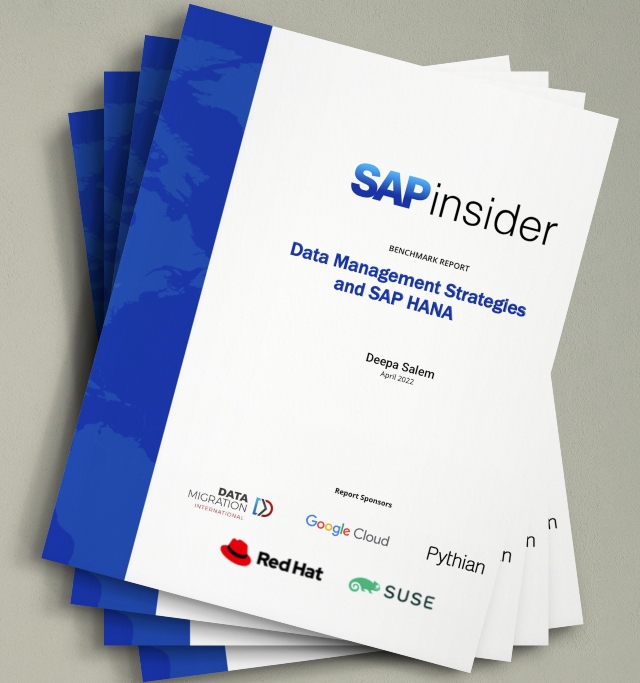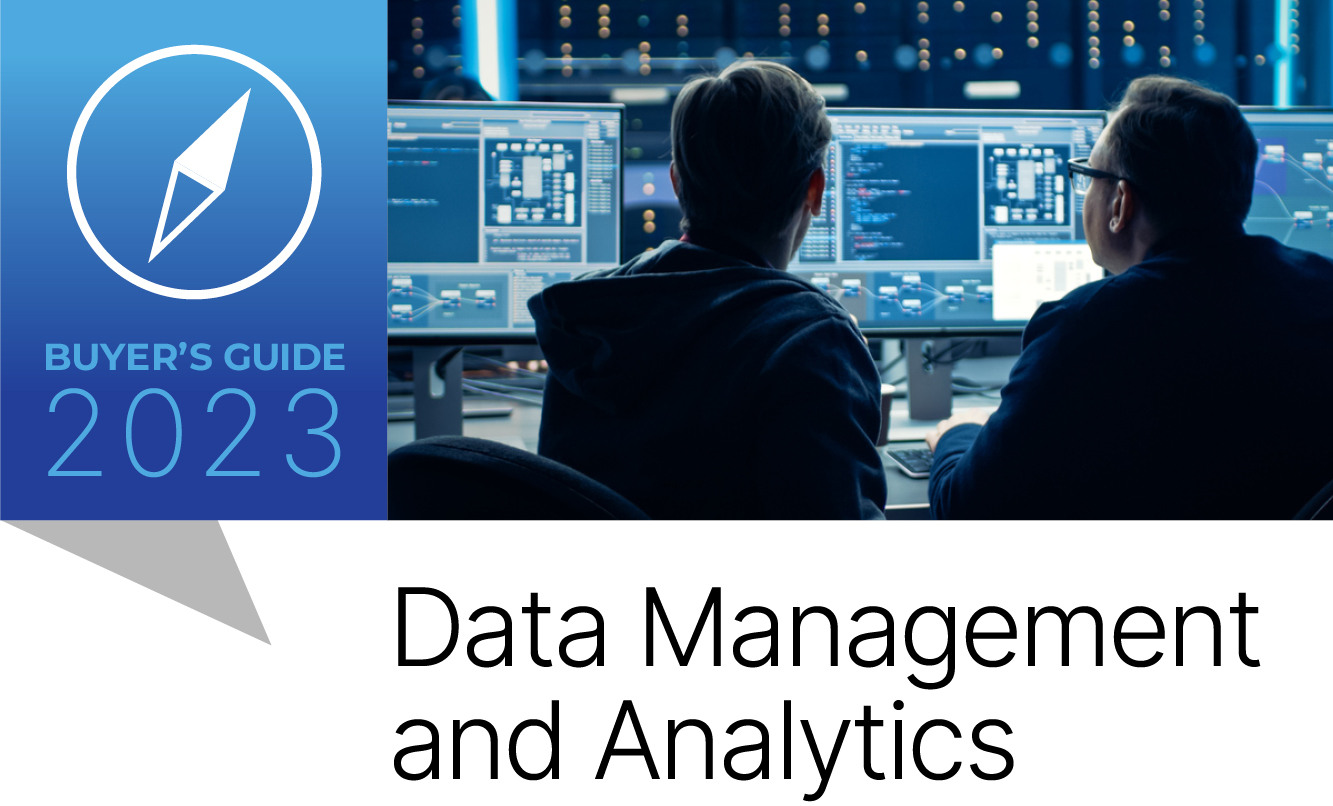Enabling the Data-Driven Enterprise with NTT DATA Business Solutions
Meet the Authors
Key Takeaways
⇨ Fostering a culture centered on data excellence empowers organizations to utilize data effectively, enabling informed decision-making, sparking innovation, and generating added value for the company.
⇨ NTT DATA Business Solutions offers services in analytics and big data, predictive analytics, data mining, and risk and regulatory, to establish a data-driven enterprise.
⇨ The company aims to continuously identify new opportunities to generate value from data in both SAP and non-SAP ecosystems, and their delivery framework includes assessment, planning, and implementation phases, and caters to diverse requirements across different contexts within and outside of SAP
We are operating in the age of the data-driven enterprise, with an increasing significance of data and analytics, transcending mere ERP reporting and visualization and embracing a holistic customer-centric approach. Decision-driven analytics can take analytics to a new level by helping organizations turn data into clear actions and those actions into measurable results. Fostering a culture centered on data excellence empowers organizations to utilize data effectively, enabling informed decision-making, sparking innovation, and generating added value for the company. NTT DATA Business Solutions offers services in analytics and big data, predictive analytics, data mining, and risk and regulatory, to establish a data-driven enterprise. The company’s portfolio comprises a blend of software intellectual property (IP) and consulting and advisory services, showcasing expertise in both consulting and implementation. This includes refining the existing IP assets, which serve as pre-built demonstrations of data and analytics capabilities. These pre-packaged solutions often act as an entry point, sparking further exploration of possibilities.
The company aims to continuously identify new opportunities to generate value from data in both SAP and non-SAP ecosystems, and their delivery framework includes assessment, planning, and implementation phases, and caters to diverse requirements across different contexts within and outside of SAP. The company engages in the complete data lifecycle, including governance, storage, integration, migration, and data cleanliness, ensuring a comprehensive basis for enhancing operational efficiency.
As Bob Meyer, Vice President Customer Experience Solutions at NTT DATA Business Solutions emphasizes, “We recognize that data analytics encompasses more than just reporting; it involves navigating complex mechanics such as data storage, governance, and integration. We cut across all areas of the data lifecycle, leveraging in-house expertise and strategic partnerships to meet diverse customer demands across functional domains like finance, supply chain, sales, and operations.”
Ongoing Innovation for SAP Data
NTT DATA Business Solutions’ strategic approach, particularly in the context of SAP’s analytics strategy, revolves around three pillars. Firstly, embedded analytics, which pertains to inherent ERP-based reporting. Secondly, extended analytics, encompassing more advanced visualizations and executive dashboards. Lastly, the need for data warehousing or a data lake. Among these pillars, advanced analytics and the data fabric/data lake stand out as areas of great interest for clients. Incorporating operational SAP data with hyperscaler AI/ML capabilities presents a unique challenge that the company is well-equipped to address. Through its advisory and educational roles, the company provides insights not only on technical aspects but also from an industry perspective, helping its clients navigate complexities effectively.
As Meyer says, “Keeping pace with the ever-evolving landscape, especially with the rise of AI technologies, is essential. This reflects the ongoing innovation driving our industry forward, and our responsibility lies in ensuring clients derive maximum benefits from these advancements while navigating complexities with confidence. We remain dedicated to supporting clients throughout their journey, adapting strategies to meet evolving business demands and leveraging SAP’s latest developments, particularly in the field of AI.”
NTT DATA Business Solutions’ strong partnership with SAP allows it to seamlessly integrate various solutions, leveraging tools like SAP Sales Cloud, SAP Service Cloud, SAP Ariba, or SAP Digital Supply Chain alongside existing investments like SAP Analytics Cloud (SAC) and SAP Datasphere (DSP).
The company is deeply rooted in SAP, encompassing all aspects of its ecosystem, from ERP to managed cloud services and the diverse range of SAP solutions. NTT DATA Business Solutions offers insights not only into analytics but across the entire SAP landscape as it owns deep-rooted knowledge of SAP’s data structures and intricacies.
As Scott Chambers, Director, Analytics at NTT DATA Business Solutions emphasizes, “Our foundation lies in our deep SAP expertise. We have fostered relationships and partnerships to complement our strengths, ensuring we can fill any knowledge gaps. Our method involves collaborating with experts across advisory and functional teams, granting us insight into ERP configurations and how they influence data structures. This holistic comprehension, starting from the core, empowers us to deliver customized solutions that precisely meet our clients’ requirements.” As SAP departs from wholesale system replacement towards integration within the broader data fabric promoting coexistence and interoperability, NTT DATA Business Solutions’ perspective extends beyond SAP to encompass a variety of companion technologies.
Case in Point
At a strategic level, with a shift towards SAC driving SAP and operational data, Datasphere and Snowflake are acting as bridges to integrate enterprise-wide information, facilitated by Power BI. This approach allows for the adoption of new SAP solutions while leveraging existing investments, ensuring a seamless transition. Moreover, Datasphere’s compatibility with SAP data streamlines implementation, facilitating a smooth transition to Snowflake where necessary.
Case in point is one of NTT Data Business Solutions’ customers that operated within a well-established Snowflake landscape, complemented by Power BI, which they were keen on retaining due to its standardization. Initially, NTT Data Business Solutions’ approach leaned towards the traditional path of extracting SAP data into Snowflake. However, midway through, the messaging and branding of Datasphere evolved, aligning perfectly with the client organization’s needs. NTT Data Business Solutions’ team crafted a tailored solution within their existing data framework, ensuring accurate reporting and analytics. The client was highly satisfied with the delivery and ongoing support.
This exemplifies NTT Data Business Solutions’ ability to navigate through evolving requirements, ultimately delivering solutions that align with their client’s standards and objectives.
What does this mean for SAPinsiders
Start with the business need: Before diving into technological solutions, it is crucial to understand and define the business need. This entails identifying pain points, struggles, and objectives from a functional standpoint. Whether it is reducing manual processes or improving reporting efficiency, aligning technology with business goals ensures meaningful outcomes.
Assess and foster data culture: Building a data-driven culture goes hand-in-hand with enhancing data literacy. It involves instilling a mindset where data is valued, trusted, and utilized across all levels of the organization. This cultural shift encourages collaboration, innovation, and continuous improvement based on data insights.
Invest in data literacy: Investing in data literacy initiatives within the company empowers employees to leverage data effectively, driving informed decision-making and fostering a data-driven culture. It is not just about generating reports but also understanding the underlying data structures, governance, and security implications.










